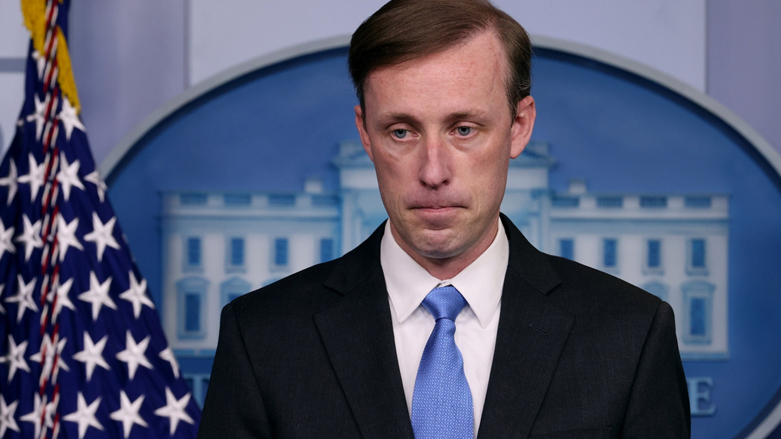White House Hails Erbil-Baghdad Oil Accord, Iraq-Total Agreement on $27 Billion Energy Project

WASHINGTON DC, United States (Kurdistan 24) – White House National Security Advisor Jake Sullivan issued a statement on Friday welcoming the “significant progress in Iraq this week with respect to energy deals.”
Sullivan hailed two developments in particular. The first was the agreement, reached on Tuesday, between Erbil and Baghdad on procedures that facilitate the resumption of oil exports from the Kurdistan Region through a pipeline to the Turkish port of Ceyhan, following an adverse ruling on March 23 from the Paris-based International Chamber of Commerce’s International Court of Arbitration that temporarily halted Kurdish oil exports.
Read More: Deal to resume Kurdish oil exports reached
The second development that Sullivan praised is an agreement, also concluded on Tuesday, between Baghdad and the French company, TotalEnergies.
It was first reached in September 2021, but held up by the Iraqi elections in October and then by the year-long political stalemate that followed.
According to the newly-concluded agreement, TotalEnergies will help develop Iraq’s energy industry in order to improve the country’s electricity supply. Qatar and Saudi Arabia will also be involved in the new infrastructure projects.
Erbil-Baghdad Oil Accord
Sullivan’s statement began by affirming that the new energy deals would “further strengthen Iraq’s sovereignty, independence, and economic prosperity.”
“First, the Government of Iraq and the Kurdistan Regional Government reached a historic agreement on the export of oil and management of revenues through the Iraq-Turkey Pipeline,” Sullivan explained.
“This agreement paves the way for a multi-year budget now before Iraq’s Council of Representatives and an eventual hydrocarbons law for long-term stability and predictability in Iraq’s energy sector,” he continued.
The U.S. strongly supported the agreement, and “behind the scenes,” it “worked very hard” on securing the deal, an informed source told Kurdistan 24. "It was all hands on deck, including those in Washington.”
With his statement on Friday, Sullivan became the most senior U.S. official to give a warm welcome to the understanding between Erbil and Baghdad on resuming Kurdish oil exports.
Also on Friday, U.S. Assistant Secretary of State for Near Eastern Affairs, Barbara Leaf, spoke with Masrour Barzani, Prime Minister of the Kurdistan Regional Government (KRG), congratulating him on the oil accord with Baghdad.
She described it “as a win for the whole country” and “emphasized U.S. support for its full implementation,” according to a read-out from Barzani’s office.
PM Barzani, for his part, welcomed her support for the Kurdistan Region and Iraq, while he “noted that progress with [Iraqi] Prime Minister Al-Sudani has laid the foundation for a new era of lasting cooperation between Erbil and Baghdad.”
Read More: US Assistant Secretary of State congratulates PM Barzani on Erbil-Baghdad deal
Iraq-TotalEnergies Accord
Sullivan also hailed the “unprecedented $27 billion deal” that Iraq reached with the French company, TotalEnergies, “including a project to enable the recapture and use of flared gas in southern Iraq.”
Iraq has been importing natural gas from Iran, and the ability to recapture and use its own flared gas will reduce that dependency.
Once implemented, this historic project will increase electricity supply for the benefit of the Iraqi people,” Sullivan continued, “advance Iraq’s energy self-sufficiency, reduce harmful climate effects from flared gas in southern Iraq, and allow for the export of gas products to new markets.”
Noting that Qatar, Saudi Arabia, and the U.S. would “play important roles in this infrastructure project,” Sullivan affirmed that Washington was “proud” to support such “regional projects to advance a more stable, interconnected and prosperous Middle East region.”
